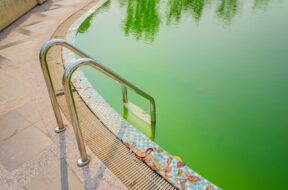
Want to learn more about algaecide? Read on to find out when to add algaecide to your pool maintenance routine and other helpful tips.
Solar pool covers are a newly invented and popularized version of a typical pool cover that could save you both time and money. Almost everyone has a normal pool cover that will keep your water free of debris and protect it from any other damage. However, why wouldn’t you have your pool heated by the sun as well? Solar pool covers are the future of pool technology, and this article will show you the ins and outs of this product.
We will be going over the technology behind solar covers, their cost for consumers, the pros and cons of owning one, and our opinion on whether they’re worth the investment.
View more articles on Pool Calculator
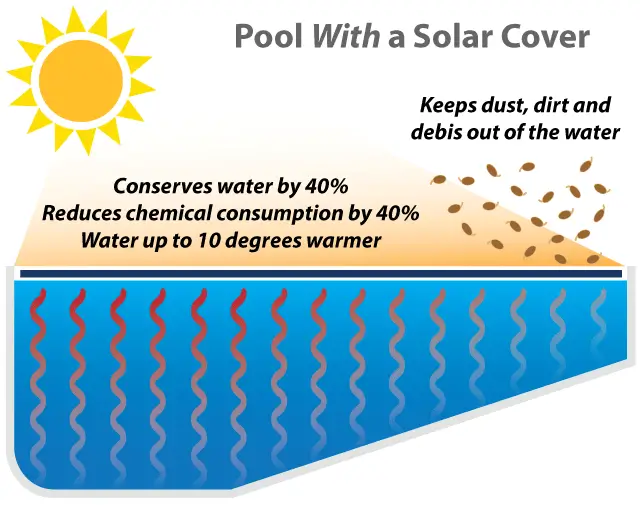
75% of swimming pool heat loss is due to heat evaporation. This is due to the fact that even when your swimming pool is heated by the sun without a cover it can lose the heat. The hot water eventually converts to a gas and is free to evaporate and leave without any barrier. In comes the solar pool cover, who acts as that barrier between your pool water and the sun.
The “bubble-wrap” appearance of this cover allows the sun to peak through the cover and heat the water. The semi-transparent surface easily allows sun rays to peak through without any problems. These covers also keeps your water and the warmth it generates where it belongs; in your pool! This is especially useful in areas that experience dry and windy climates. These covers counteract the excessive evaporation that happens due to these climates and saves you money on heating costs.
Not every new invention brought to the market has to break the bank. This is true in the case of solar pool covers. In fact, solar pool covers are relatively inexpensive, ranging from $75-225. This might be more than your run-of-the-mill pool cover, but it could save you hundreds of dollars in heating costs. This means that you get to use less way total electricity to heat your pool. This is all possible with a slightly higher initial price for these covers, a price that likely ends up paying for itself when it is all said and done.
Solar pool covers will not shock you with their durability but are no worse than typical pool covers. These covers will likely need to be replaced every 2-4 years. Also, it can be stated that the heating ability of the cover will deteriorate over time. This means that while your product may last 4 or more years, its efficiency will likely steadily decrease over time. Places like Arizona with a lot of direct sunlight year-around will wear out significantly faster than somewhere with limited sunshine throughout the year.
We at Pool Calculator believe that a solar pool cover is a good investment for most pool owners. If you can overlook the higher price tag, we see the pros as heavily outweighing the cons. Actually, if used properly and with safety, these covers will save you money in the long run. They will also add convenience to your pool days with faster heating and cut down on total electricity and water costs for your house.
For general information on Pool Covers here on PoolCalculator.com, check out our article on “Which Type of Swimming Pool Cover is Right for You?”.
Our handy Pool Calculator tool can help you create a perfectly balanced pool!

Want to learn more about algaecide? Read on to find out when to add algaecide to your pool maintenance routine and other helpful tips.
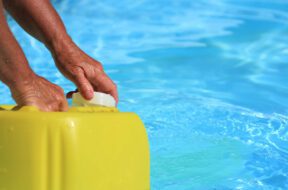
In this quick guide, we’ll answer the question “can you over shock a pool” and unveil the factors to consider when shocking a pool.
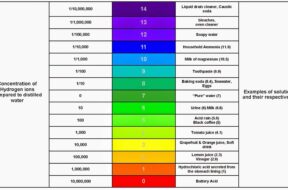
Maintaining both pH and total alkalinity in your swimming pool is important for keeping your pool properly sanitized and non-corrosive. Total alkalinity is to pH what cyanuric acid is to free chlorine. Total alkalinity stabilizes pH levels. The ideal pool pH level is 7.4 to 7.6. The ideal total alkalinity level is 80 to 120 ppm.
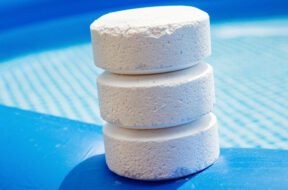
The Association of Pool and Spa Professionals recommends free chlorine levels for both swimming pools and hot tubs be kept between 2.0 and 4.0 ppm. However, the Center for Disease Control recommends free chlorine stay above 1 ppm in pools and 3 ppm in hot tubs.